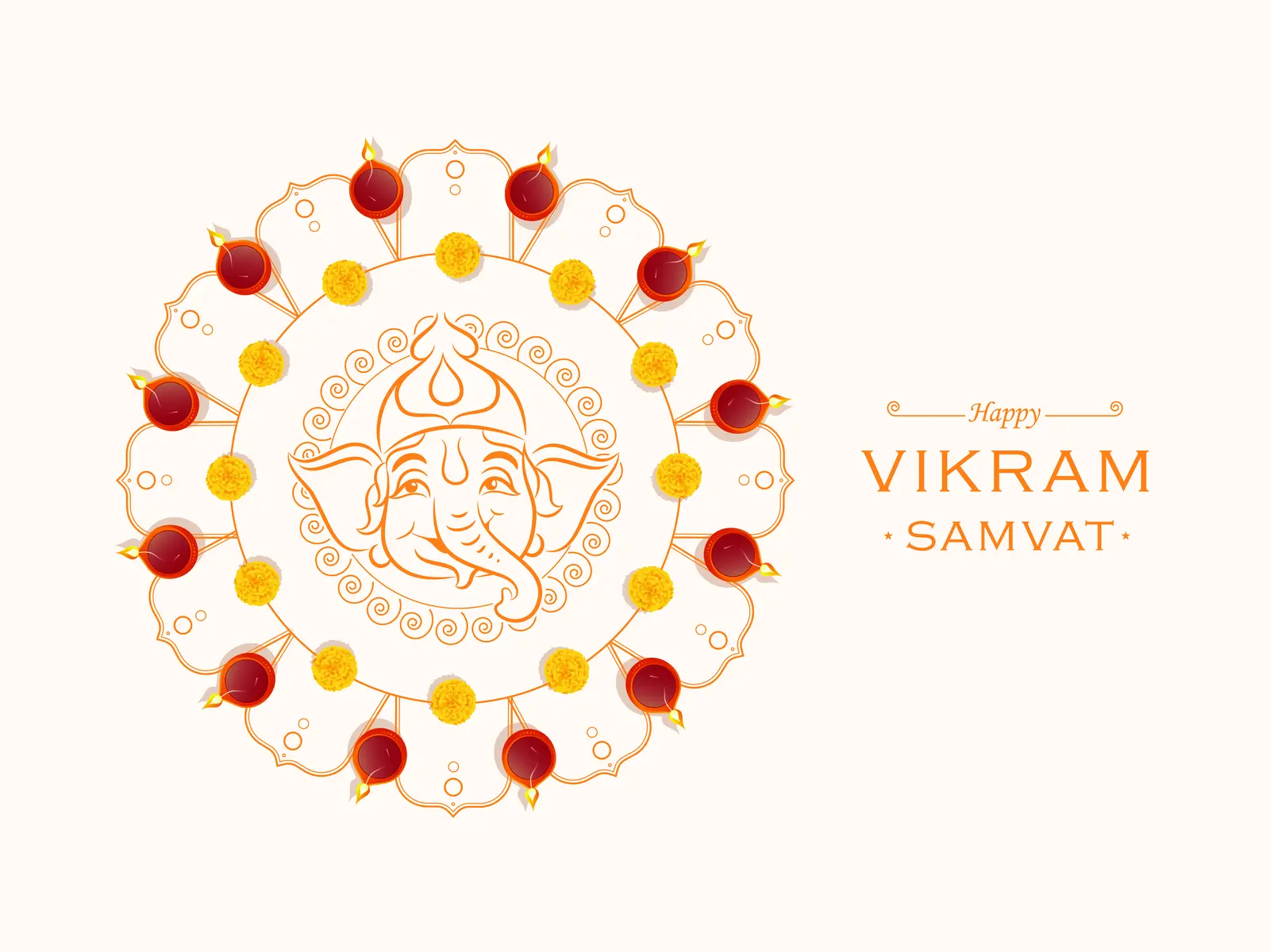Business News
Vikram Samvat explained: What is Samvat 2081, does it start with Diwali 2024 and more

4 min read | Updated on October 31, 2024, 14:05 IST
SUMMARY
Samvat 2081 is set to begin soon as the Diwali festival is on the horizon. For many, the beginning of the Samvat 2081 will be a new start for their financial journeys. The markets are ready to transition into Samvat 2081 and investors are keeping a close eye on the upcoming trends ahead of the festive season.

The Vikram Samvat calendar typically runs about 57 years ahead of the Gregorian calendar
The Samvat 2081 is here, ready to begin with the upcoming Diwali festival. Many investors believe this is the best time to revisit their financial strategies and plan for the year ahead. Many consider it the right time to start their investment journey. The important question is—does the new Samvat really start with Diwali?
What is Vikram Samvat 2081?
Vikram Samvat, with ‘Samvat’ meaning year, is a Hindu solar calendar primarily used in India and Nepal. A solar calendar is a way of organising the year on the basis of the Sun’s apparent position relative to the stars. Unlike lunar calendars, solar calendars consider both the Sun and the Moon when determining the flow of the year and its seasons. Vikram Samvat, followed by Hindus and Sikhs in India, is also Nepal’s official calendar.
The Vikram Samvat calendar typically runs about 57 years ahead of the Gregorian calendar, which is the official calendar in India alongside the Saka/Shaka calendar. However, from January to April, it is only 56 years ahead. This discrepancy occurs because the Vikram Samvat year starts in the spring (around March-April), so for those few months, the current Gregorian year aligns with the previous Samvat year.
Also known as the Vikrami calendar, it features twelve or thirteen lunar months in each solar sidereal year, depending on the Moon’s cycle. A sidereal year means that the calendar attempts to align both the Sun and the stars when calculating the time it takes for the Earth to orbit the Sun.
Vikram Samvat is considered lunisolar, meaning that its dates reflect both the lunar phases and the solar year (the Sun's position in the sky).
The first day in the Vikram Samvat Calendar is Chaitra Navratri, making it the Hindu Lunar New Year. Named after "vasanta," which means spring, this festival occurs during the lunar month of Chaitra (around March-April, following winter). In many areas, this festival is celebrated after the spring harvest, while in others, it is celebrated during the harvest season.
The festival of Vaisakhi, celebrated usually on April 13 or 14 every year, signifies the start of the Hindu Solar New Year in regions like Punjab, Northern, Eastern, Northeastern, and Central India, according to the solar Vikram Samvat calendar. It holds historical and religious significance in Hinduism. Moreover, the first day of Baisakh is celebrated as the Nepalese New Year because it aligns with the Hindu Solar New Year according to the Nepali Bikram Sambat calendar.
Thus, this means that the Samvat mostly begins in April. So why do people say that it begins with the festival of Diwali?
Although the Vikram Samvat year is based on the lunar calendar and starts in the month of Chaitra (around March-April) as explained above, the year is often associated with festivals like Diwali. When people mention that Samvat begins with Diwali, they often refer to the new financial year or the new investment cycle that many choose to start during this auspicious time. Diwali is widely considered a perfect time for new beginnings and investments in India. This is the reason many align their financial strategies with this festival, even though the actual Samvat year starts in the spring.
What to expect in Samvat 2081?
With the current geopolitical situation, the upcoming US elections, volatile markets, and rising gold prices, the upcoming Samvat can be a game changer for many.
Key factors to watch include the U.S. elections, Reserve Bank of India (RBI) policy decisions, and the Union Budget for FY26. Reports indicate that maintaining a diversified portfolio may help mitigate some challenges expected in the coming months.
In Samvat 2080, the Indian equity market performed well due to strong economic growth and supportive government policies, even with challenges like elections and global tensions, according to a report by Moneycontrol. The market momentum is expected to be slow as the Samvat 2081 begins.
Related News
By signing up you agree to Upstox’s Terms & Conditions
About The Author
Next Story



